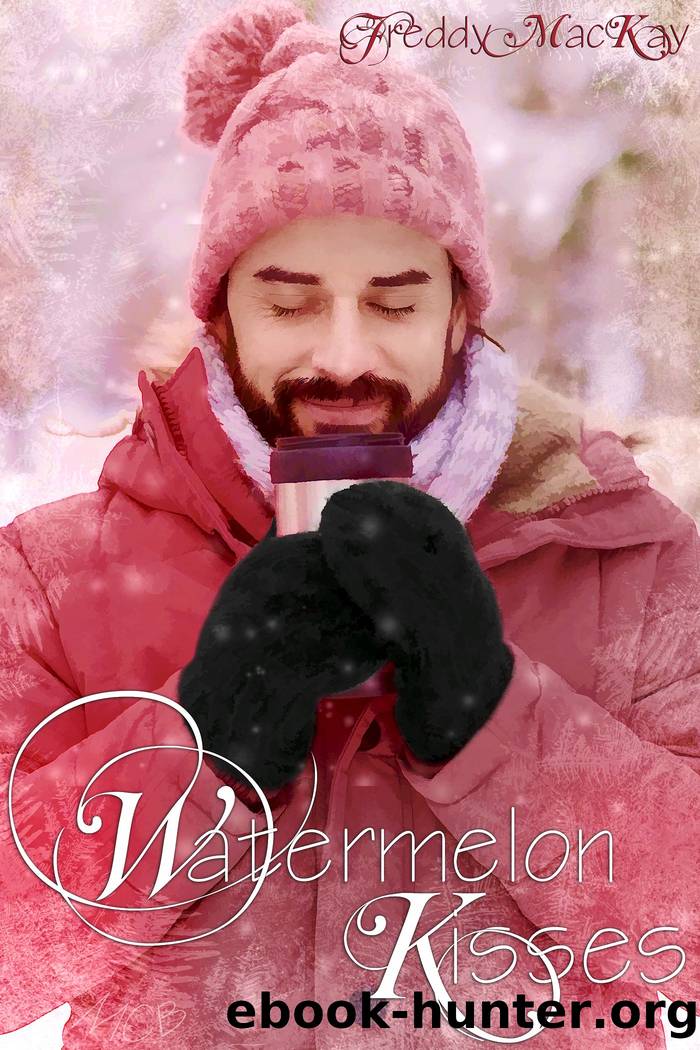Watermelon Kisses by Freddy MacKay

Author:Freddy MacKay [Freddy, MacKay,]
Language: eng
Format: epub
Tags: Gay Romance, MM Romance, Holiday Story, Shab-e Yalda, Person Holidays, Iranian, Gay, Gay Contemporary Romance
Publisher: Mischief Corner Books
Published: 2017-04-15T00:00:00+00:00
The End
Shab-e YaldÄ
Shab-e YaldÄ, also known as Shab-e Chelleh, is an Iranian (Persian) festival celebrated on the night of the winter solstice. On this night, friends and family gather together to eat, drink, and read poetry from Hafez until well after midnight, even into the early morning hours of dawn because it is the longest, darkest night of the year. The celebration (and the night) mark the initial forty-day period of the three-month winter; the night between the last day of autumn and the first day of winter.
The term Shab-e YaldÄ comes from the Syriac-speaking Christians who had migrated into the Persian region to protect themselves from religious persecution. YaldÄ, which in Syriac means "birth", was the proper name for Christmas in a religious context and was celebrated on the eve of the winter solstice. The Christian festival's name passed onto their non-Christian counterparts and gradually Shab-e YaldÄ became synonymous with Shab-e Chelleh.
The traditional celebrations for Shab-e YaldÄ come from the Zoroastrians, in which the winter solstice was a particularly inauspicious day. Customs developed that were intended to protect people from the evil forces of Ahriman. These forces are thought to be at their peak during the winter solstice and it is advised for everyone to stay awake for most of the night or misfortune might happen upon them. Friends and families gather together groups for safety, and share the last remaining fruits from summer. They also find other ways to pass the night together.
In Iran, extended family and friends come together to enjoy a special dinner that has a variety of fruits, drinks, and sweetmeats specifically prepared or kept for Shab-e YaldÄ. Usually the gathering is held at the family elder's house. Traditionally, drinking wine was part of the celebration, and despite ban on alcohol in Iran, many continue to include homemade and contraband alcoholic drinks in their celebration. Tea and sharbat are also served. Common foods served either by themselves or as side dishes are watermelon, pomegranate, nuts and dried fruit. Fruits such as pomegranates and watermelons hold important meaning because the red color in these fruits symbolize the crimson hues of dawn and glow of life.
Lighthearted superstition surrounds the different foods and fruits served during Shab-e YaldÄ. It is believed eating watermelon will ensure a person's health and well-being during the months of summer by protecting them from falling victim to excessive heat or disease produced by hot humors. There is a belief in Khorasan people who eat carrots, pears, pomegranates, and green olives will be protected against the harmful bites of insects, most importantly, the sting of scorpions.
Another important facet to the festival is the sharing of stories and jokes as well as reminiscing with friends and family. Divination using the DÄ«vÄn of Hafez is popular among Persian families. There is a long-standing superstition no one celebrating Shab-e YaldÄ should divine by the DÄ«vÄn of Hafez more than three times because if they do so, Hafez will get angry with the group. The poems and stories
Download
This site does not store any files on its server. We only index and link to content provided by other sites. Please contact the content providers to delete copyright contents if any and email us, we'll remove relevant links or contents immediately.
The Greek's Christmas Bride by Lynne Graham(4014)
One Day in December by Josie Silver(3875)
Twelve Days of Christmas by Debbie Macomber(3549)
Wyoming Winter: A Small-Town Christmas Romance (Wyoming Men) by Diana Palmer(2998)
I Heart Forever by Lindsey Kelk(2855)
On the Naughty List by Lori Foster & Carly Phillips & Beth Ciotta & Sugar Jamison(2708)
Fifty Shades of Grey: Book One of the Fifty Shades Trilogy by E L James(2523)
The Italian's Christmas Secret by Sharon Kendrick(2156)
Home for Christmas by Alexa Riley(2132)
The Holiday by Jane Green & Jennifer Coburn & Liz Ireland(2109)
An Innocent, A Seduction, A Secret by Abby Green(1977)
The Devil Wears Prada by Lauren Weisberger(1960)
Mistletoe Wedding by Melissa McClone(1931)
The Santa Trap by Fiona Davenport(1918)
Our World by Mix Little(1875)
An Heir Fit for a King by Green Abby(1810)
Mischief & Mistletoe by Tanya Anne Crosby - Mischief & Mistletoe(1801)
Christmas Cakes and Kisses by Anne Hagan(1780)
Mother's Day Babies (Holiday Babies Series) by Risk Mona(1749)
